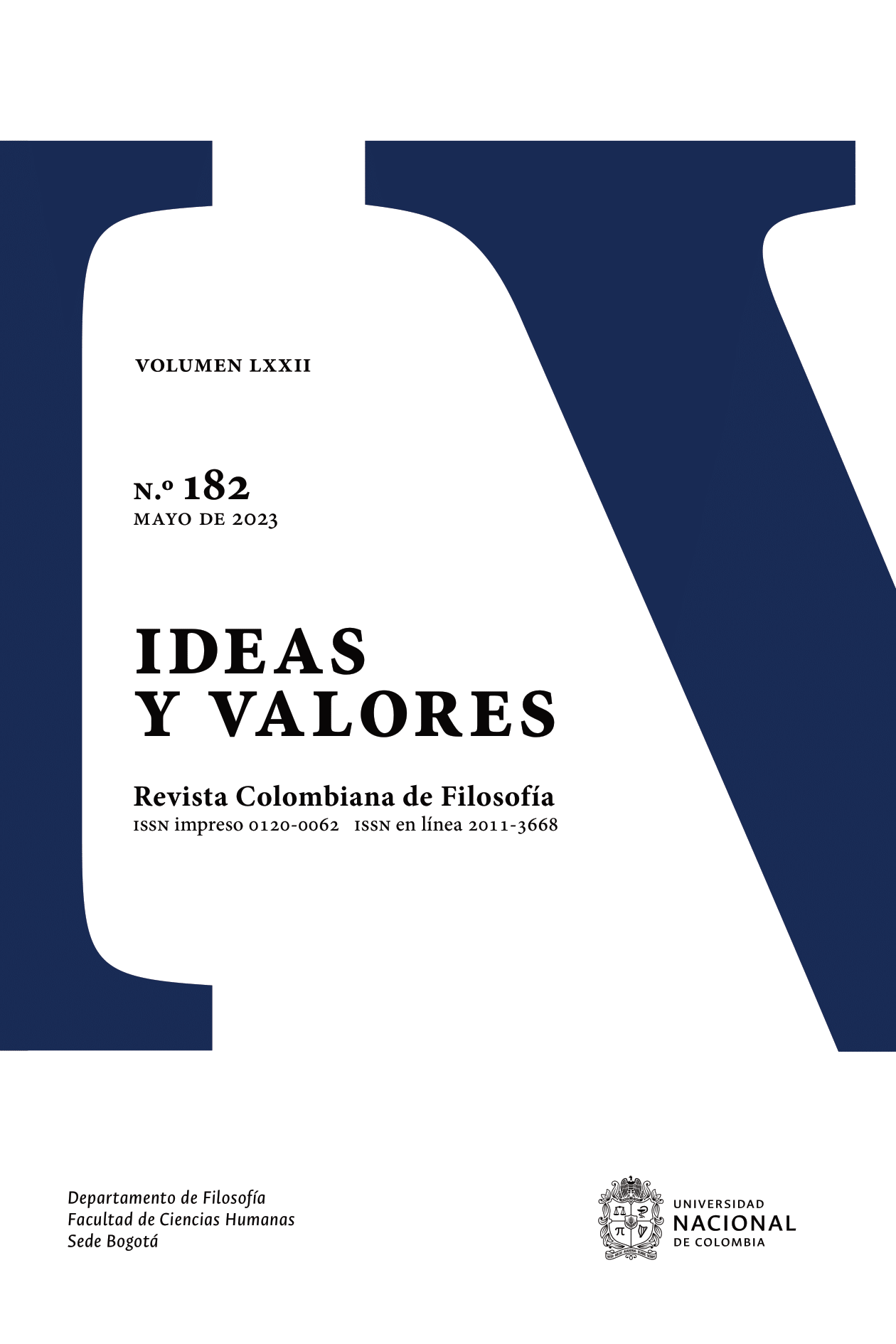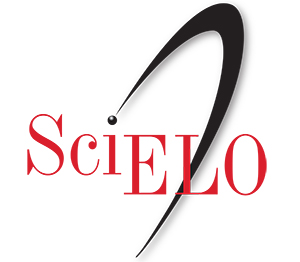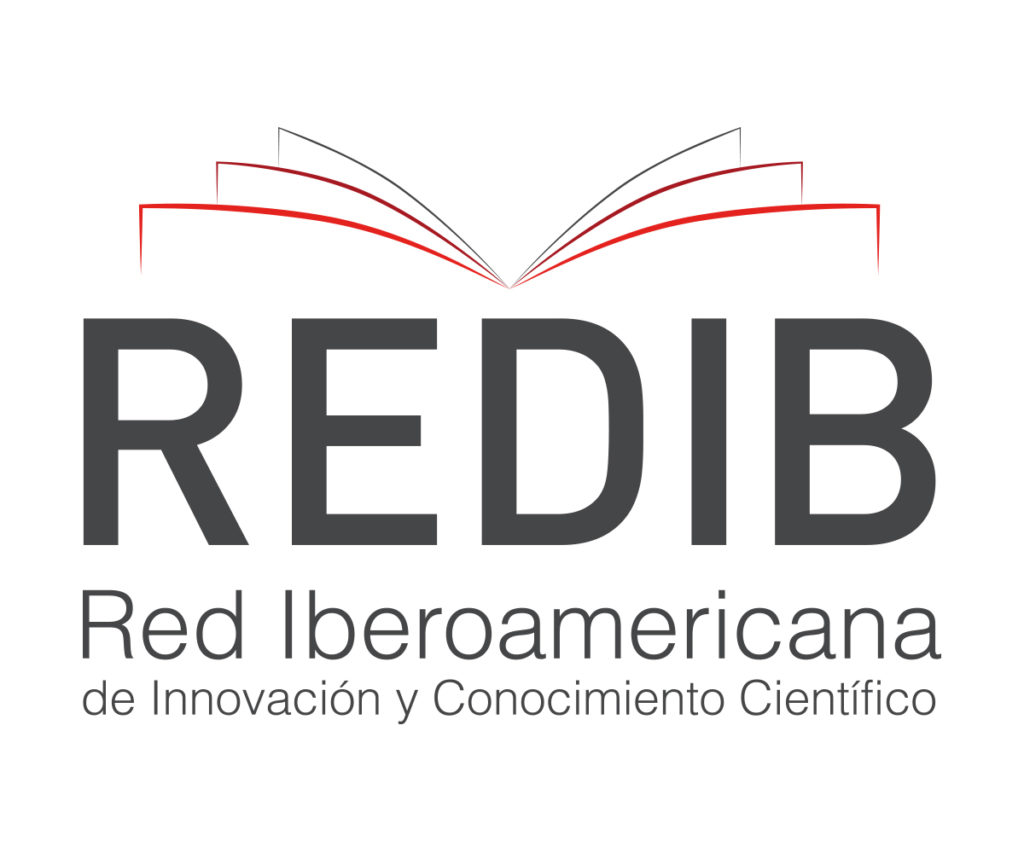Tras el laberinto humeano: una concepción material de la inducción sin tesis ontológica
After the Humean Labyrinth: A Material Conception of Induction without Ontological Theses
DOI:
https://doi.org/10.15446/ideasyvalores.v72n182.84589Palabras clave:
Norton, Inducción, Justificación epistémica, Problema de Hume (es)Norton, Induction, Epistemic justification, Hume's Problem (en)
Descargas
En este artículo defiendo que el problema humeano de la justificación racional de la inducción no ha contribuido a la comprensión filosófica de este tipo de inferencias. La teoría material de la inducción propuesta por Norton (2003) permite analizar el razonamiento inductivo más allá del laberinto justificativo humeano, pero con un corte demasiado alto: asumir que las inducciones dependen intrínsecamente de cómo es localmente la realidad. En su lugar, propongo una teoría de la inducción en la que las inducciones dependen no de tesis ontológicas, sino de las capacidades cognitivas para comprimir información de un modo epistémicamente efectivo.
In this article I argue that the Humean problem of rational justification induction has not contributed to the philosophical understanding of this type of inference. The material theory of induction proposed by Norton (2003) allows us to analyze inductive reasoning beyond the Humean justificatory labyrinth, but with a higher cut: assuming that inductions intrinsically depend on how reality is locally. Instead, I will propose a theory of induction in which inductions depend not on ontological theses, but on cognitive capacities to compress information in an epistemically effective way.
Referencias
Armstrong, David M. What is a Law of Nature? Cambridge University Press, 1983. DOI: https://doi.org/10.1017/CBO9781139171700
Bird, Alexander. Philosophy of Science. McGill-Queen’s University Press, 1998. DOI: https://doi.org/10.4324/9780203165348
Dawid, Richard. “Turning Norton’s Dome Against Material Induction.” Foundations of Physics 45.9 (2015): 1101-1109. DOI: https://doi.org/10.1007/s10701-015-9943-0
Dennett, Daniel. “Real Patterns.” The Journal of Philosophy 88.1 (1991): 27-51. Earman, John. Bayes or Bust? mit Press, 1992. DOI: https://doi.org/10.2307/2027085
Henderson, Leah. “The Problem of Induction.” The Stanford Encyclopedia of Philosophy. Editado por: Edward N. Zalta (2019): [https://plato.stanford.edu/entries/induction-problem/
Hume, David. Tratado de la naturaleza humana. Tecnos, 2004.
Mill, Stuart. The Collected Works of John Stuart Mill. Editado por John M. Robson. University of Toronto Press, 1991.
Ladyman, James y Ross, Don. Every Thing Must Go: Metaphysics Naturalized. Oxford University Press, 2007. DOI: https://doi.org/10.1093/acprof:oso/9780199276196.001.0001
Lipton, Peter. Inference to the Best Explanation. Routledge, 1991. DOI: https://doi.org/10.5840/cogito1991518
Norton, John. “A Material Theory of Induction.” Philosophy of Science 70.4 (2003): 647–670. DOI: https://doi.org/10.1086/378858
Norton, John. “Challenges to Bayesian Confirmation Theory.” Handbook of the Philosophy of Science. Vol. 7. Edited by Prasanta S. Bandyopadhyay and Malcolm R. Forster; Elsevier B.V, 2011. 391-440. DOI: https://doi.org/10.1016/B978-0-444-51862-0.50011-3
Norton, John. The Material Theory of Induction: BSPS Open/University of Calgary Press, 2021. DOI: https://doi.org/10.1515/9781773852553
Okasha, Samir. “What did Hume Really Show about Induction?” The PhilosophicalQuarterly 51.204 (2001): 307-327. [http://doi:10.1111/1467-9213.00231]
Owen, David. Hume’s Reason. Oxford University Press, 1999.
Papineau, David. “Reliabilism, Induction and Scepticism.” The Philosophical Quarterly42.166 (1992): 1-20. [http://doi:10.2307/2220445]
Peirce, Charles Sander. Collected Papers. Vols. 1-6. Editado por Charles Hartshorne y Paul Weiss. Harvard University Press, 1931-1935.
Popper, Karl. The Logic of Scientific Discovery. Hutchinson, 1959 DOI: https://doi.org/10.1063/1.3060577
Psillos, Statis. Scientific Realism. How Science Tracks Trnth. Routledge, 1999.
Salmon, Wesley. “On Vindicating Induction.” Philosophy of Science 30.3 (1963): 252–261. [https://doi:10.1086/287939]
Schurz, Gerhard. Hume’s Problem Solved. The Optimality of Meta-Induction. The mit Press, 2019. DOI: https://doi.org/10.7551/mitpress/11964.001.0001
Skyrms, Bryan. From Zeno to Arbitrage: Essays on Quantity, Coherence and Induction. Oxford University Press, 2012. DOI: https://doi.org/10.1093/acprof:oso/9780199652808.001.0001
Solomonoff, Roy. “A Formal Theory of Inductive Inference, Part I.” Information and Control 7.1 (1964): 1-22. DOI: https://doi.org/10.1016/S0019-9958(64)90223-2
Sosa, Ernest. A Virtue Epistemology. Oxford University Press, 2007. DOI: https://doi.org/10.1093/acprof:oso/9780199297023.001.0001
Strawson, Peter Frederick. Introduction to Logical Theory. Methuen, 1952.
Cómo citar
MODERN-LANGUAGE-ASSOCIATION
ACM
ACS
APA
ABNT
Chicago
Harvard
IEEE
Turabian
Vancouver
Descargar cita
Licencia
Derechos de autor 2021 Los derechos son del autor(es), quien(es) puede re-publicar en parte o en su totalidad el documento ya publicado en la revista siempre y cuando se dé el debido reconocimiento a Ideas y Valores

Esta obra está bajo una licencia internacional Creative Commons Atribución-NoComercial-SinDerivadas 4.0.
De acuerdo con la Licencia Creative Commons Atribución-No Comercial-SinDerivar 4.0 Internacional. Se autoriza copiar, redistribuir el material en cualquier medio o formato, siempre y cuando se conceda el crédito a los autores de los textos y a Ideas y Valores como fuente de publicación original. No se permite el uso comercial de copia o distribución de contenidos, así como tampoco la adaptación, derivación o transformación alguna de estos sin la autorización previa de los autores y de la dirección de Ideas y Valores. Para mayor información sobre los términos de esta licencia puede consultar: http://creativecommons.org/licenses/by-nc-nd/4.0/legalcode.















.jpg)











